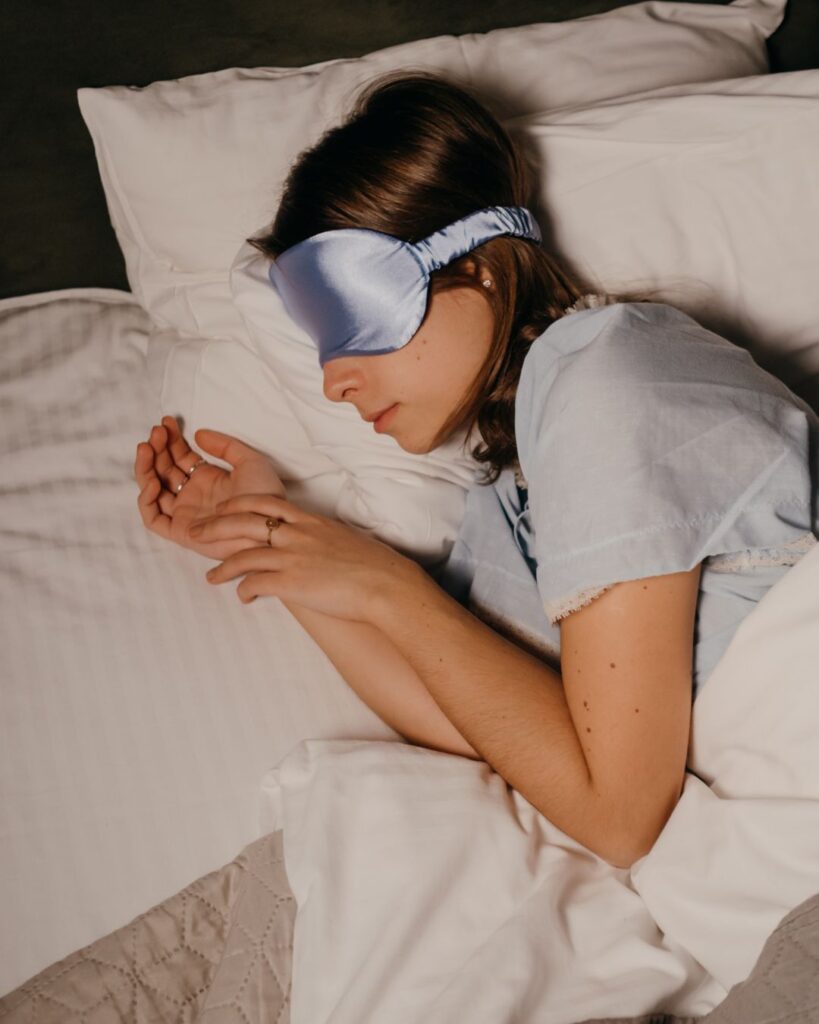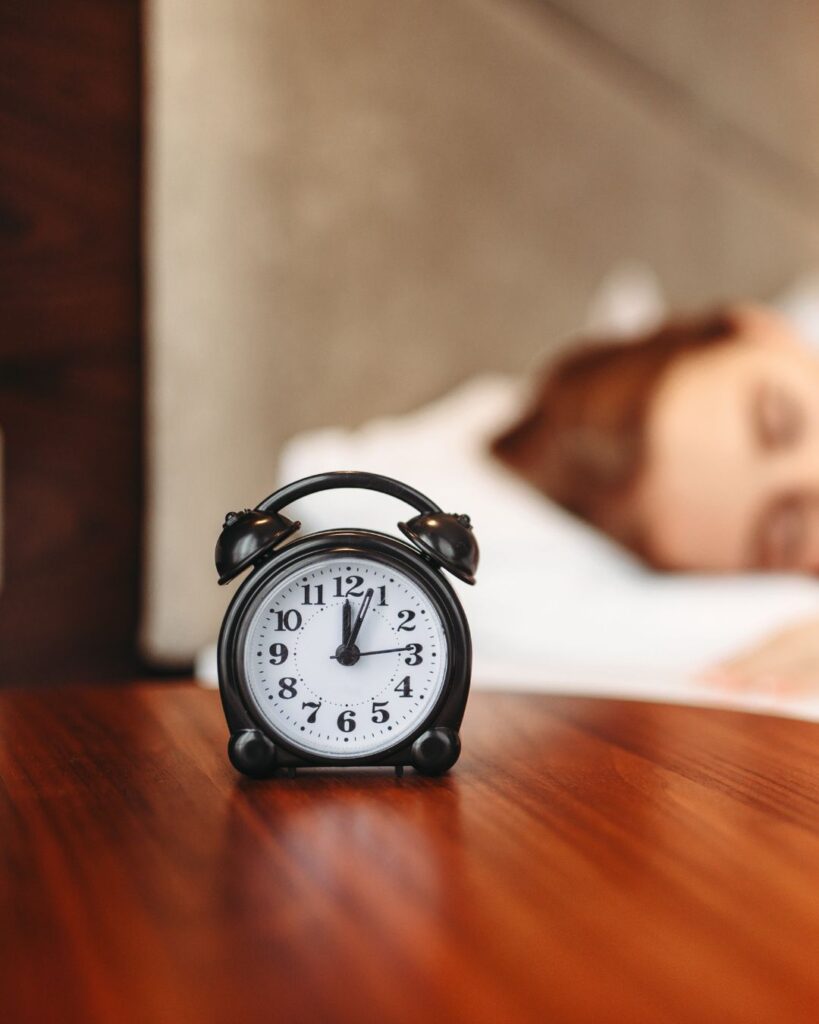Research shows that up to 70 to 80% of individuals with social anxiety disorder experience some form of sleep disturbance, significantly higher than the general population. This striking statistic reveals the critical interplay between sleep and anxiety that often goes unaddressed in treatment plans.
When we struggle with social anxiety, our racing thoughts don’t simply vanish at bedtime, they often intensify in the quiet darkness, creating a vicious cycle where poor sleep amplifies anxiety symptoms the following day.
Understanding this bidirectional relationship between sleep quality and social anxiety disorder is essential for developing effective treatment approaches. For many patients, addressing one without the other may significantly limit overall recovery outcomes.
The Connection Between Sleep and Social Anxiety
Our brains process social experiences and regulate sleep through interconnected neural pathways. This explains why disruptions in one area frequently affect the other.
People seeking Social Anxiety Disorder Treatment often show heightened amygdala activity – the brain’s fear center, which doesn’t simply “turn off” at bedtime. This overactivity maintains a state of hyperarousal making it difficult to transition into restful sleep. Brain scans reveal that this same hyperactive amygdala that triggers social fear during daytime interactions continues firing excessively during sleep attempts.
Sleep Deprivation and Anxiety Amplification
Even a single night of poor sleep can significantly increase anxiety levels. Sleep deprivation reduces prefrontal cortex function, the brain region responsible for regulating emotional responses, while simultaneously increasing amygdala reactivity. This neurobiological shift creates a perfect storm for intensified social anxiety symptoms the following day.
Stress Hormone Regulation During Sleep
Quality sleep plays a crucial role in regulating cortisol and other stress hormones. When we don’t sleep well, these hormones remain elevated, creating a physiological state of anxiety that persists regardless of cognitive coping strategies. This hormonal imbalance can undermine even the most effective psychological interventions for social anxiety.
The complex neurobiological relationship between sleep and anxiety explains why treating one without addressing the other often yields incomplete results. Let’s examine the specific sleep disruption patterns common in those with social anxiety disorder.

Sleep Dysfunction Patterns in Social Anxiety Disorder
People with social anxiety often experience distinctive sleep problems that differ from general insomnia or sleep disturbances seen in other disorders.
Extended Sleep Onset Latency
For many people with social anxiety disorder, falling asleep becomes particularly challenging. Studies show they typically spend 15-30 minutes longer trying to fall asleep compared to people without anxiety. This extended sleep onset latency stems from racing thoughts about past social interactions or worries about future ones.
Sleep Maintenance Difficulties
Even when successfully falling asleep, many with social anxiety experience frequent awakenings throughout the night. These disruptions typically occur during periods of lighter sleep, preventing the deeper, restorative stages necessary for emotional regulation and cognitive functioning.
Reduced Sleep Efficiency
Sleep quality measurements reveal that people with social anxiety often achieve only 70-80% sleep efficiency (time actually sleeping versus time in bed). This reduced efficiency means even those spending adequate time in bed aren’t receiving the restorative benefits of proper sleep.
The specific nature of these sleep disruptions creates distinctive challenges for treatment effectiveness. Understanding these patterns helps clinicians develop targeted interventions that address both the sleep and anxiety components simultaneously.
The Vicious Cycle: How Poor Sleep Exacerbates Social Anxiety Symptoms
The relationship between sleep problems and anxiety creates a self-reinforcing loop that can be difficult to break without targeted intervention.
Emotional Reactivity to Social Stimuli
Poor sleep dramatically increases emotional reactivity to social cues. After inadequate sleep, neutral facial expressions often appear threatening, casual remarks seem critical, and normal social interactions feel overwhelmingly stressful.
Cognitive Function Impairment
Sleep quality directly impacts cognitive abilities crucial for managing social anxiety. Sleep-deprived individuals demonstrate reduced impulse control, impaired memory, and diminished ability to implement anxiety management techniques during social situations.
Physical Manifestations
Sleep deprivation creates physical symptoms nearly identical to anxiety, elevated heart rate, muscle tension, and even trembling. These physiological changes can trigger “false alarms” in the anxiety response system, creating anxiety symptoms even in non-threatening situations.
Breaking this cycle requires targeted interventions addressing both sleep disruption and anxiety management strategies. To effectively do this, clinicians must properly assess sleep patterns in patients with social anxiety.
Evidence-Based Findings on Sleep Quality and Treatment Outcomes
Research consistently demonstrates that sleep plays a crucial role in determining how well patients respond to anxiety treatments.
Sleep as a Predictor of CBT Response
Multiple studies show that patients with better sleep quality at the beginning of treatment demonstrate significantly stronger responses to cognitive behavioral therapy for social anxiety disorder. Initial sleep quality may actually predict treatment success more accurately than baseline anxiety severity in some cases.
Sleep Improvement Correlating With Anxiety Reduction
Research findings consistently demonstrate that improvements in sleep during treatment correlate strongly with reductions in social anxiety symptoms. For example, patients who improve their sleep within the first few weeks of treatment typically show anxiety reductions 30-40% greater than those whose sleep remains disrupted.
Longitudinal Evidence
Long-term studies tracking patients for 2-5 years post-treatment reveal that those maintaining good sleep quality experience fewer relapses of social anxiety. This suggests that sleep may serve as a protective factor against the return of anxiety symptoms.
These evidence-based findings highlight the importance of integrating sleep interventions into the treatment plan for social anxiety disorder. Next, we’ll explore practical approaches for doing exactly that.

Integrated Treatment Approaches: Addressing Both Sleep and Anxiety
To improve sleep while managing social anxiety, treatment plans should incorporate strategies addressing both issues simultaneously.
CBT Adaptations for Social Anxiety and Insomnia
Standard cognitive behavioral therapy can be adapted to address both social anxiety and sleep problems. These modified protocols typically include dedicated modules focusing on sleep hygiene, stimulus control, and cognitive restructuring of sleep-related thoughts alongside traditional anxiety reduction techniques.
Mindfulness-Based Interventions
Mindfulness practices have shown remarkable effectiveness for both sleep disturbance and anxiety management. These approaches teach patients to observe anxious thoughts without judgment, reducing the rumination that often disrupts both daytime functioning and nighttime sleep.
Pharmacological Considerations
When medications are necessary, careful consideration should be given to options that address both conditions. Certain SSRIs can benefit both social anxiety and sleep disturbance, while others might improve anxiety but disrupt sleep architecture. Medication selection should be guided by this dual-goal approach.
An integrated treatment approach recognizing the bidirectional relationship between sleep and anxiety offers the most promising path to recovery. By addressing both issues simultaneously, treatment effectiveness dramatically improves.
Transforming Treatment Through Better Sleep
The research is clear: sleep quality plays a pivotal role in the effectiveness of social anxiety disorder treatment. By recognizing sleep not merely as a symptom but as a critical factor in the maintenance and treatment of social anxiety, clinicians can significantly enhance treatment outcomes.
For those struggling with social anxiety, addressing sleep concerns isn’t optional, it’s essential. Improving sleep doesn’t just make you feel better rested; it creates the neurobiological foundation necessary for anxiety treatments to work effectively. When we prioritize both sleep and anxiety in treatment planning, we address the full spectrum of factors maintaining the disorder.
The next frontier in anxiety treatment will likely focus on even more sophisticated integration of sleep science and anxiety protocols, potentially transforming outcomes for millions suffering from this debilitating condition.
Your Questions Answered: Sleep and Social Anxiety
Why is it important to assess sleep quality in patients with anxiety disorders?
Sleep assessment is crucial because poor sleep can maintain or worsen anxiety symptoms, reduce treatment response, and increase relapse risk. Addressing both issues together leads to better outcomes than treating anxiety alone.
What is the best treatment for social anxiety disorder?
The most effective approach combines cognitive-behavioral therapy (specifically targeting social anxiety), sleep hygiene interventions, and medication when necessary. This integrated approach addresses both the psychological and physiological aspects of the disorder.
How does sleep affect social anxiety?
Poor sleep triggers viral loneliness and social rejection. UC Berkeley researchers have found that sleep-deprived people feel lonelier and less inclined to engage with others, avoiding close contact in much the same way as people with social anxiety.



